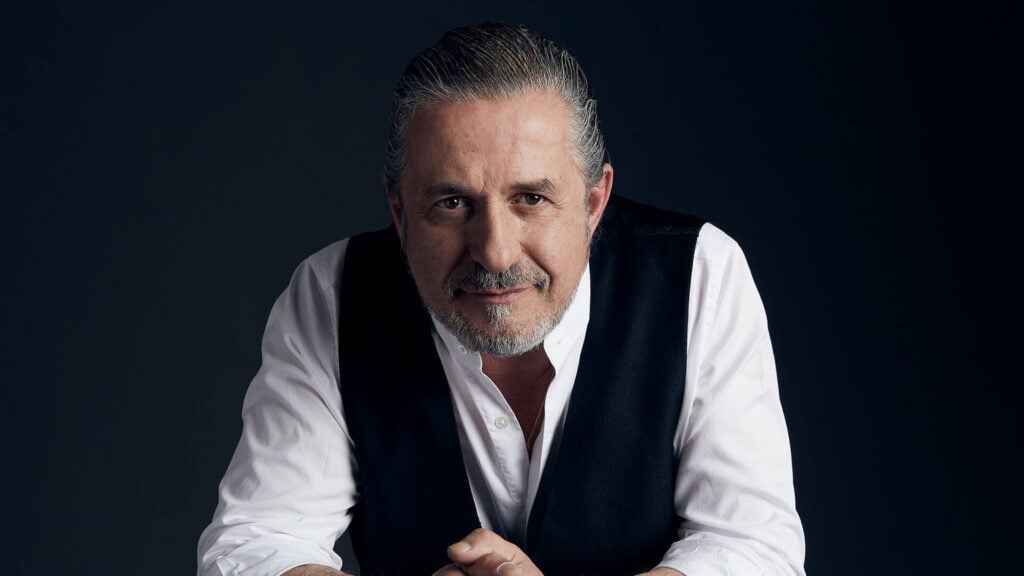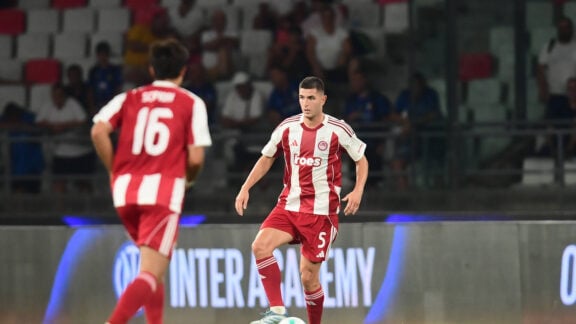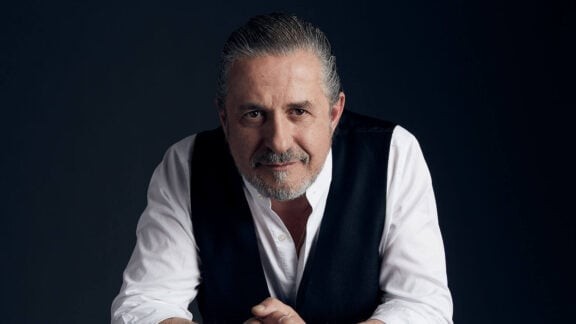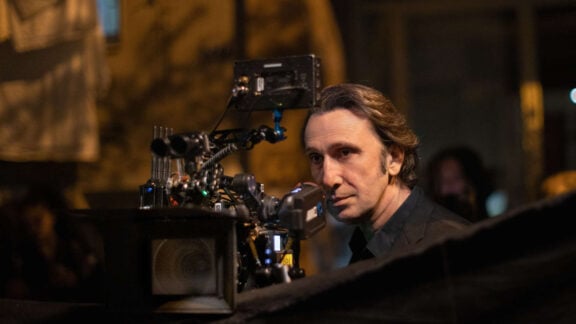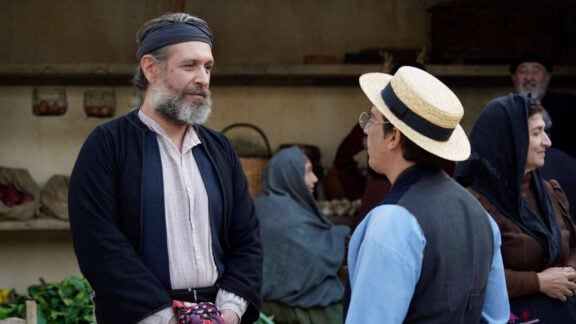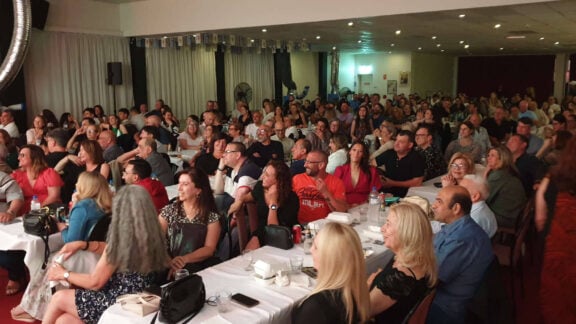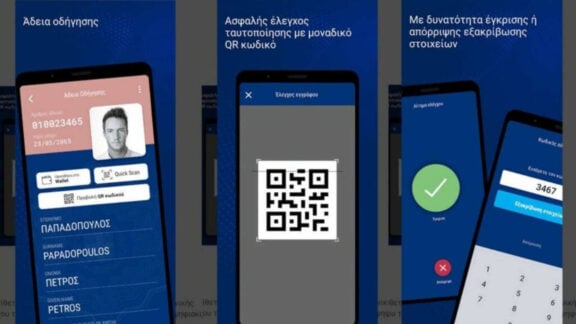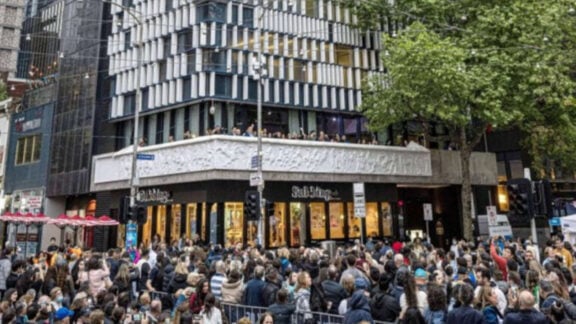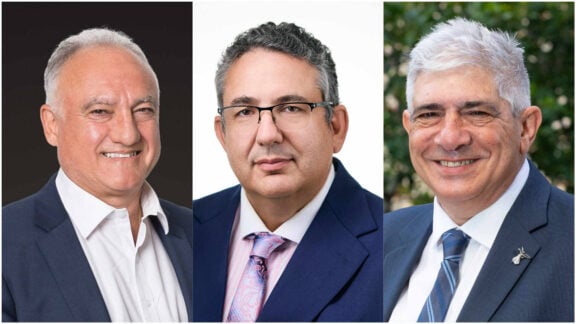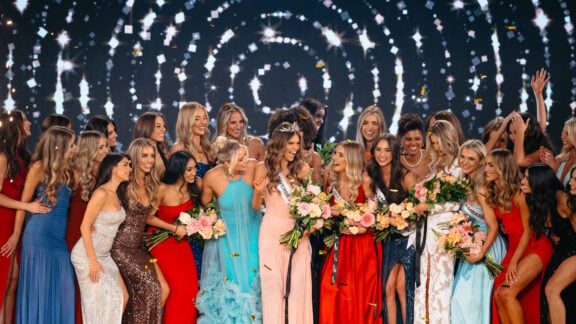In another life, Nick Polidoros will be selling out Wembley Stadium tomorrow with his band Expozay.
But now as he sees his products through the windows of hotels worldwide, he wouldn’t change a thing.
Nick is the founder of IHS Global Alliance, having spent over 35 years crafting the best furniture for the hospitality industry.
And yes, he does think his products are the best. The trollies you see in hotels, Nick made them. Peninsula’s, Armani’s, Raffles, Four Seasons, Ritz Carlton’s – you name it – his in them.
Now as they all wait for his next and maybe last ‘album’, which will be released soon, Nick chats with Neos Kosmos about a life worthy of a book.
Growing up Greek in Australia
Nick is the son of Greek immigrants, his mother Georgia from a little village just outside Kalamata called Malta, and his father Vasili from a remote village called Perivolia, high in the mountains in the middle of the Peloponnese.
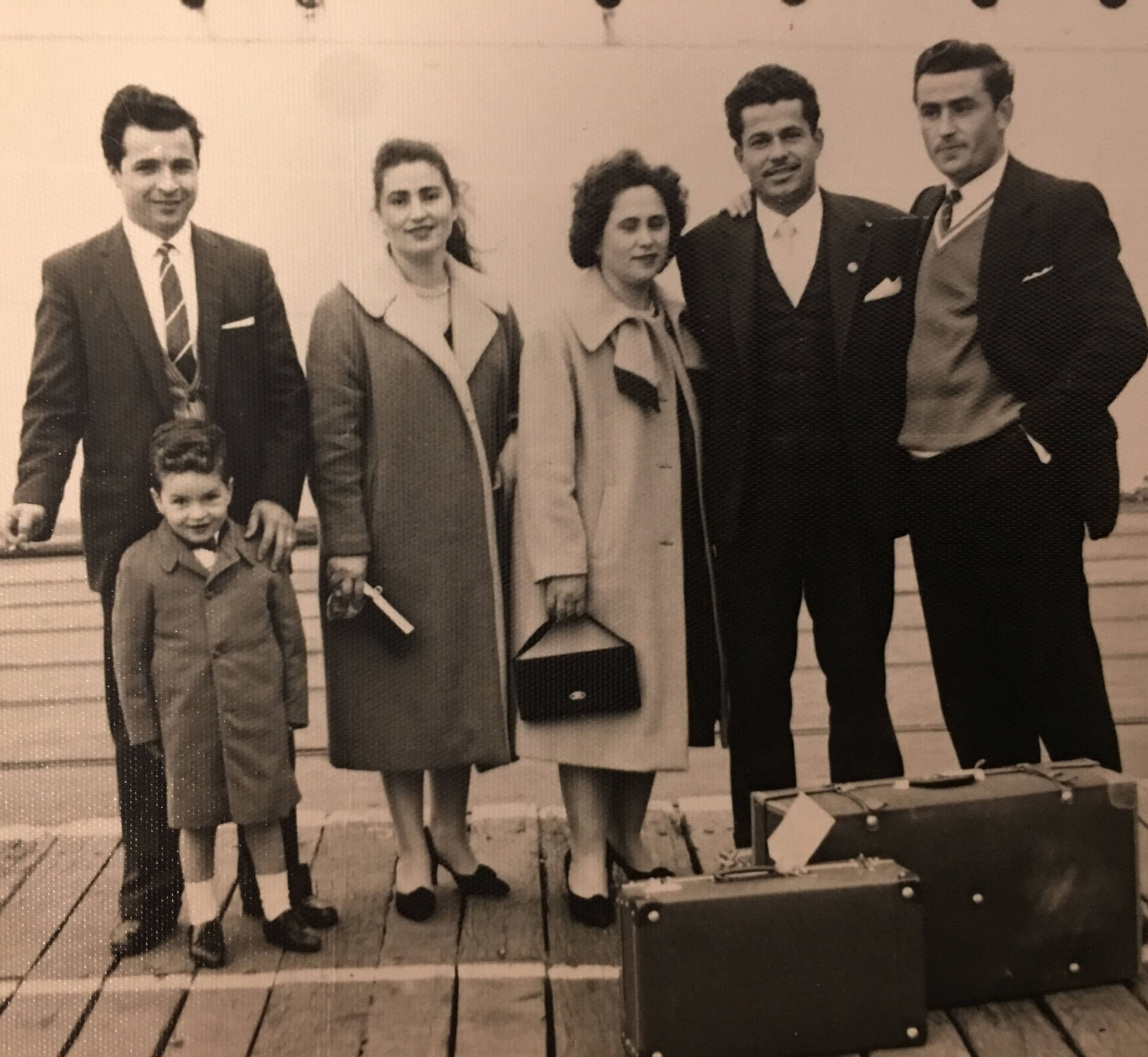
“It’s quite amazing that post war period with what they’ve all achieved and I couldn’t be prouder of our experience and how we were raised,” he says.
Nick grew up in hospitality, around family cafes. His father was a cook in hotels.
Nick’s family ended up moving from Melbourne to Tasmania for a majority of his youth, which he says taught him a lot about life because there were very few Greeks there.
“We left the comfort of the Melbourne community and that was an eye opener of racism and violence.”
He recalls his son one time saying ‘I’m really sorry about your upbringing’, he just looked at him and said ‘I wouldn’t change a thing’.
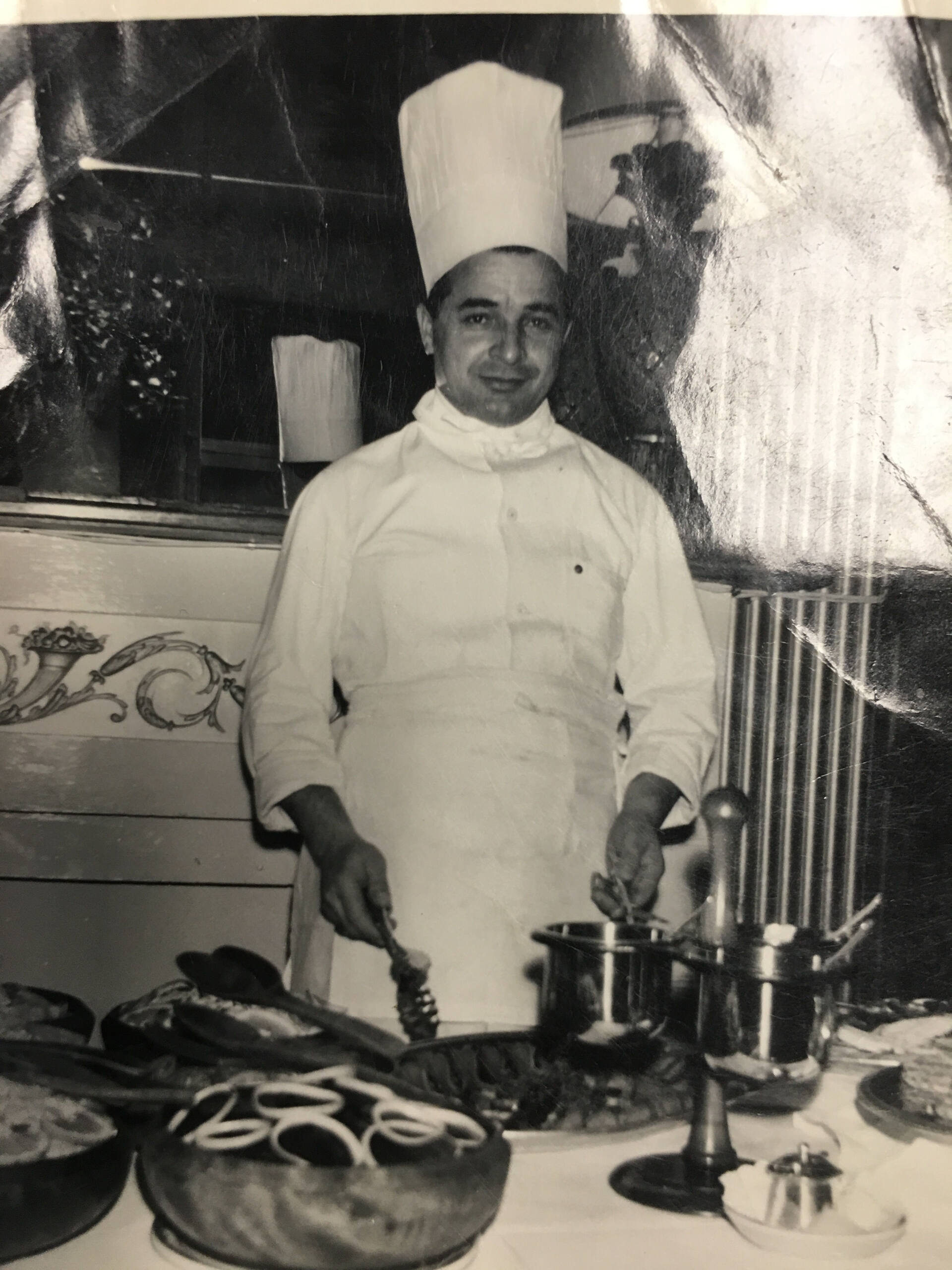
“I thank my father all the time for having the balls to come to a country that he can’t even speak the language,” he says.
“It’s just got to be admired and I’m the result of that and I think I want people to understand that even without an education, just good work ethic, which is what they brought here.
“I think that has to be acknowledged, let alone the successes of what they allowed me to achieve, which not a lot of Greek parents did, let me have the freedom to do what I want.
The usual ‘Na ginis giatros’ (You’ll be a doctor), ‘Na min pezis afto to football’ (You’re not going to play this football).
Nick went against the grain.
In his youth he was a state side footballer, one of the fastest kids in track and field, but funnily enough only did that because he “wanted to get away from the magazi (shop)”.
“I remember once I was on television running a state final, and I said to my father ‘hey look, look’, he goes ‘afise me tora ehoume fai na ftiaksoume’ (leave me now, we’ve got food to make).
“When I made the Tasmanian football side, my father didn’t even let me play, but my mother luckily had to talk to him so I can play.”
Nick even won the best and fairest but no one was there for him.
“I don’t know how to take that, in a way it’s sad, you know,” he says.
“I ended up coaching my own kids for four years at the local community football club because I wanted to make sure that they didn’t feel that loneliness.”
What could have been
Like many bands, Nick’s group Expozay was formed out of high school, and they worked very hard. To give an example of their quality, Kate Ceberano was their front singer.
Nick recalls driving one-night hearing radio presenter Billy Pinnell saying on his show ‘this has got to be the next great band that’s coming up in Australia’ and the song that played was by Expozay.
The band had a residency at Macy’s in South Yarra, working five nights a week for nearly three years.
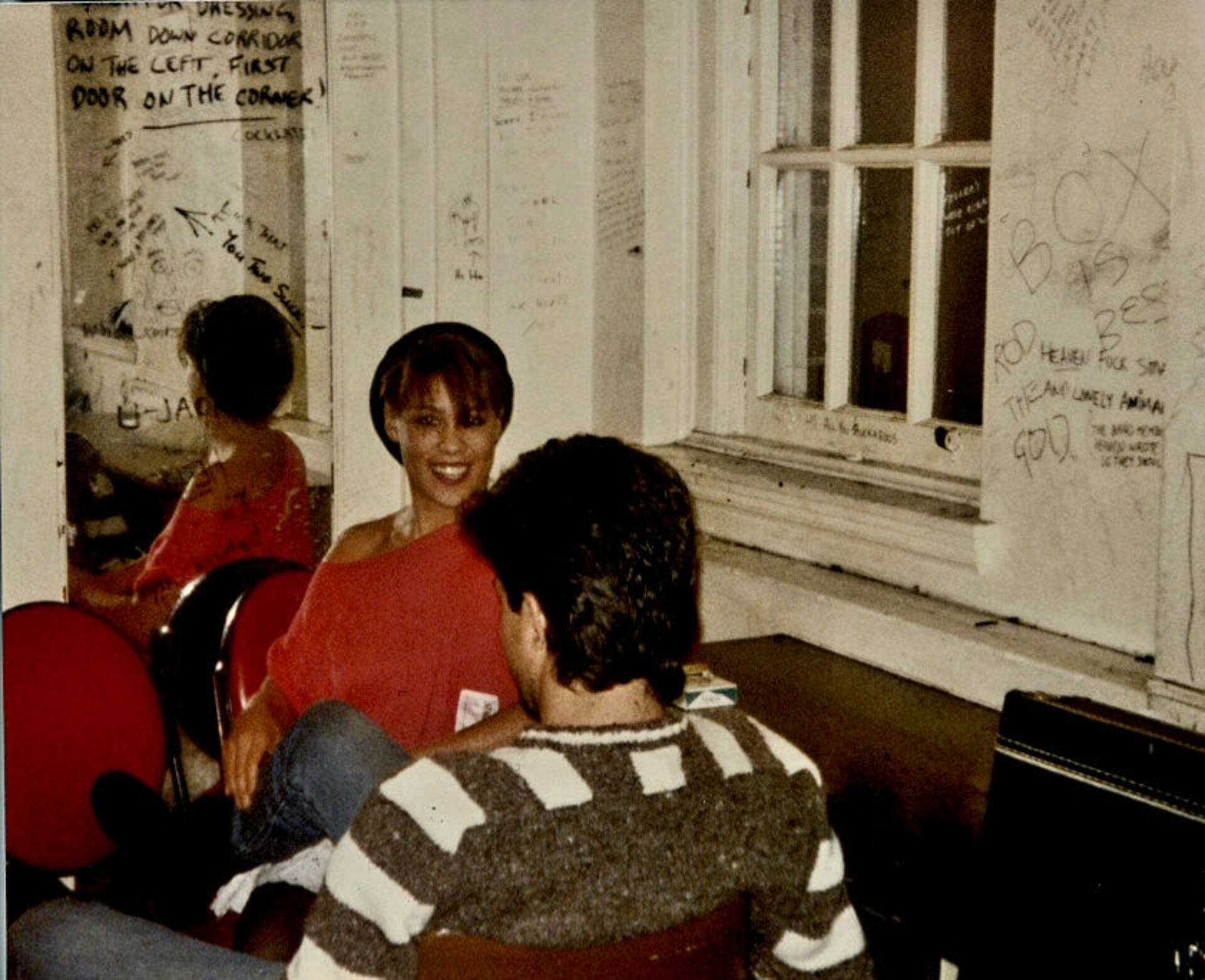
Expozay found themselves amongst good company too, with David Briggs, who was in Little River Band and produced ‘The Boys Light Up’ for Australian Crawl, recording them out of his studio for nothing.
“David Briggs is one of the best songwriters Australia’s ever seen. I mean, one of the greatest guitarists,” Nick says.
“We’re little kids and we’re looking at this guy.
“I’ll never forget an image where we were playing at Macy’s, and I looked out one night and I saw not only David Briggs, I saw Glenn Wheatley, I saw Michael Gudinski and a lot of other famous producers.”
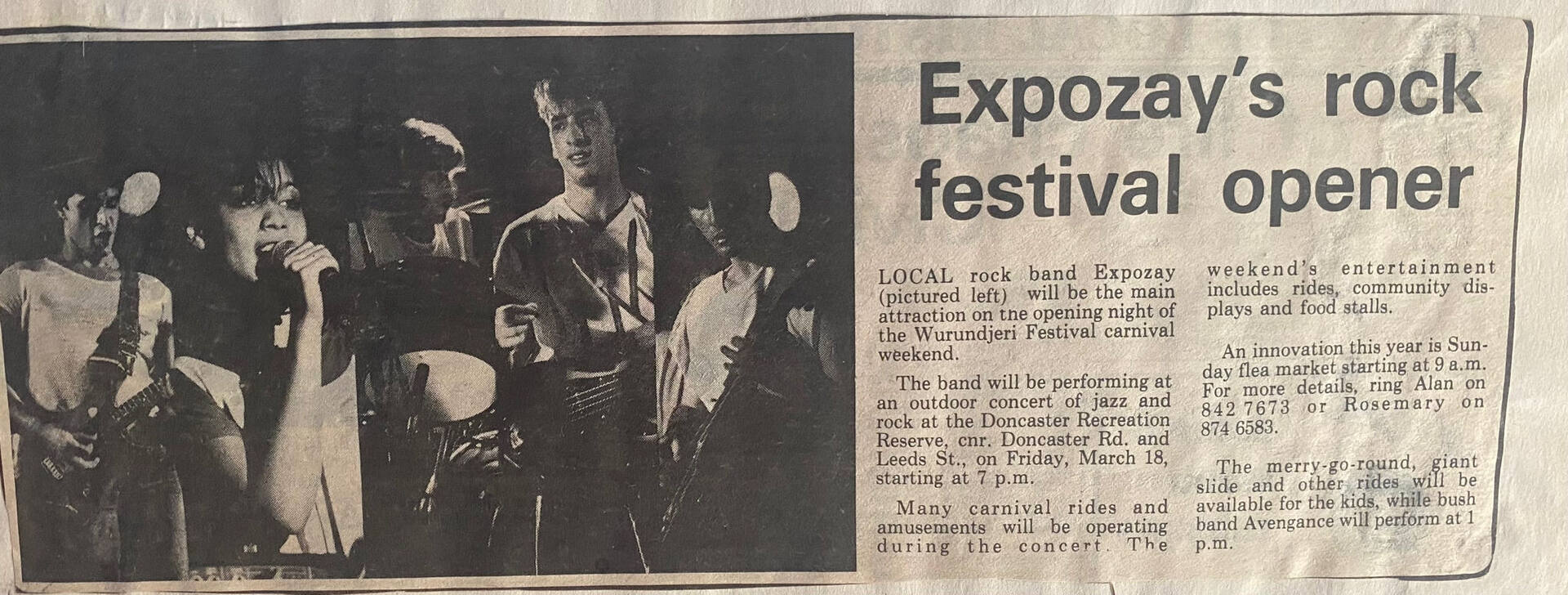
Everything’s coming up Expozay.
Then one day Kate’s mother showed up saying they need new management.
They had an offer from the managers of either INXS or Midnight Oil according to Nick, but he didn’t want to turn their backs on their current manager who got them to where they were.
Kate was being pulled away from the group and it became matter of its either everyone or they’ll just take Kate.
The band was over.
“I saw Kate recently at a corporate rooftop gig, and I can’t believe what I saw because I think she’s that talented, that the world had to see her,” Nick says.
“In her book she mentioned my name, which annoyed me, and said that she destroyed my dream to be a rock god.”
But he doesn’t view it that way. He wouldn’t change a thing.
“I’m probably the most successful exporter in this country and I’m in every capital city. I’m sitting in a beautiful apartment in the city today where I don’t even live and I’m looking outside to see my product through windows of hotels,” he says.
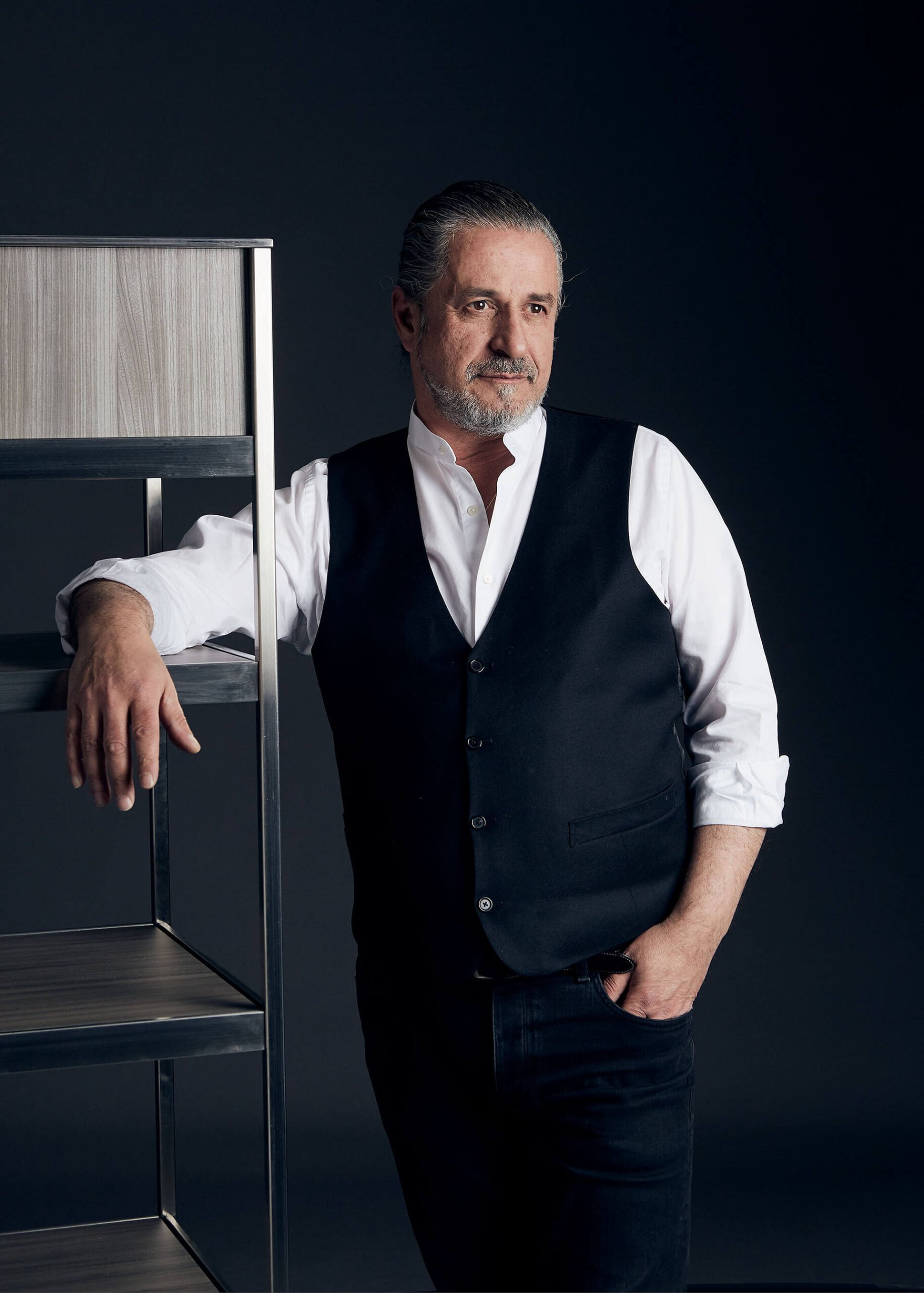
When Nick came home one day and told his father about what happened, he laughed and said ‘Expozay go down with the ship’.
‘He’s actually having a laugh at me. I ask him why are you laughing? I just lost a good opportunity.”
“It’s no different to when I was going through my business journey and I had to liquidate [more on that later] and he was on the floor laughing.
“I couldn’t believe it, he’s such a sort of a moral, religious man, very straight, but to see him on the floor laughing, and I said, ‘why are you laughing? They’re throwing everything away dad, I’ve lost everything!”
“He said because now you’re ready for business son.”
Nick’s father had taught him about failure.
Building an enterprise
As mentioned, Nick created IHS, but the story behind it is after the band fell apart, he started working at hotels like his father.
He was working at the Hilton, now the Pullman, in room service, working 80 hours a week, when one day he overheard management talking about buying new trollies and that they costed $1,000 (this was in 1985).
Having pushed trollies for years now, and taking up a metal working hobby in his youth, Nick figured he might be able to design one himself.
When he asked if he can have a crack at that, he was laughed and told ‘you’ve got two months’.
He then got to work, finding the right people to help and coming back with 10 trollies and 10 food warmers, much to the shock of his employers.
Being a new and growing industry, Nick was able to carve himself a spot at the top, getting exposed to lots of revenue and quickly took 100 per cent market share in every hotel in Australia.
Taking on America… or so he thought
As Nick puts it, he got cocky and thought, if he can do it here, he’s going to take on the American market.
To capture just how high he was riding at the time, he’d draw on a familiar pop-culture reference when lecturing university students in international business.
He would point to The Wolf of Wall Street and tell them that, compared to him, Jordan Belfort was actually a lightweight.
“Because when I got this business, I was just showered with money — and you can only imagine what was about to happen,” he says.
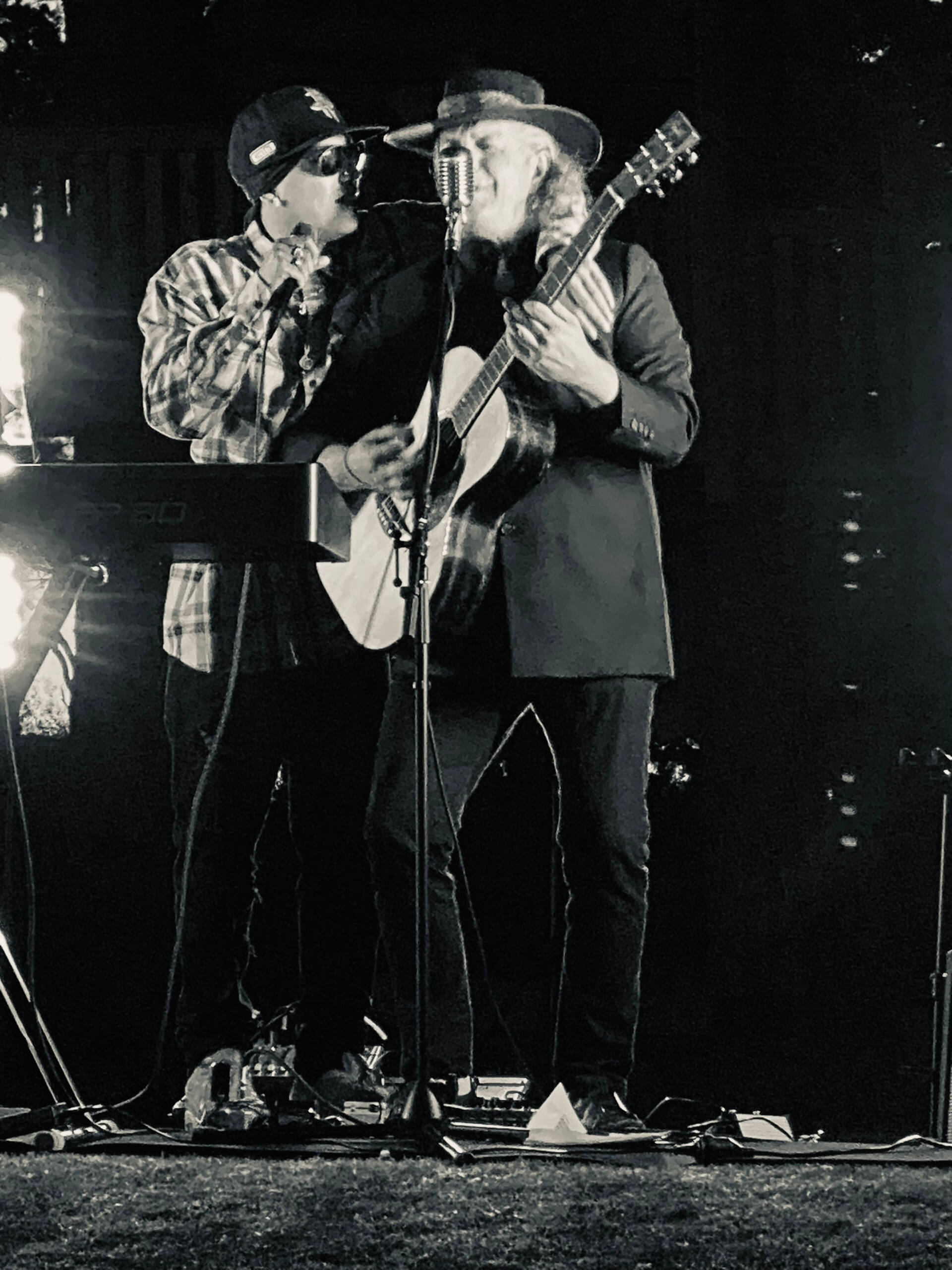
Nick went to Chicago and travelled America for three years. In Chicago he did mix up with the Greeks there, heading down to Greektown, which is what Lonsdale Street was in Melbourne.
He met a publisher with the same name as him and realised that the Greeks there were what the third generation Greek Australians are like now.
“They claimed they’re the largest Greek population, I said no, no, no, it’s Melbourne,” Nick says.
“I’m not gonna try count them all but it must be one of the biggest community of Greeks there.”
Interestingly he found that Greeks owned most of the restaurant trade there, not just souvlakia shops but Italian restaurants.
“Greeks mastered hospitality over there, which is not surprising. I haven’t met an auntie who can’t cook.”
Then came along the 91′ crash and recession, and had to come back “with my tail between my legs”.
But looking back, he remembers what his father taught him, failure is a part of life.
“When I see my kids fail and they get upset, I tell them it’s actually success. It’s a hidden success,” Nick says.
“You don’t get anywhere in life if you don’t fail and if you haven’t failed, I wouldn’t invest in you.”
Nick came back to Australia fully broke, and owed a lot of money to family who helped him out.
He says he felt trapped and it was depressing but he slowly had to rebuild, working in a little factory on his own at night so he can go out and sell more products.
But because “Australia was on its arse”, he had to go into Asia and distribute and pick off the best hotels.
Keeping out the limelight
Nick says he is a humble man and doesn’t brag. He doesn’t really let anyone see him and it’s is why his success and fortune has been quiet.
He has even spent a fortune making sure nobody can see the farm he has built, a property he describes as the Acropolis.
“It sort of symbolises us, the estate’s called Perivolia.”
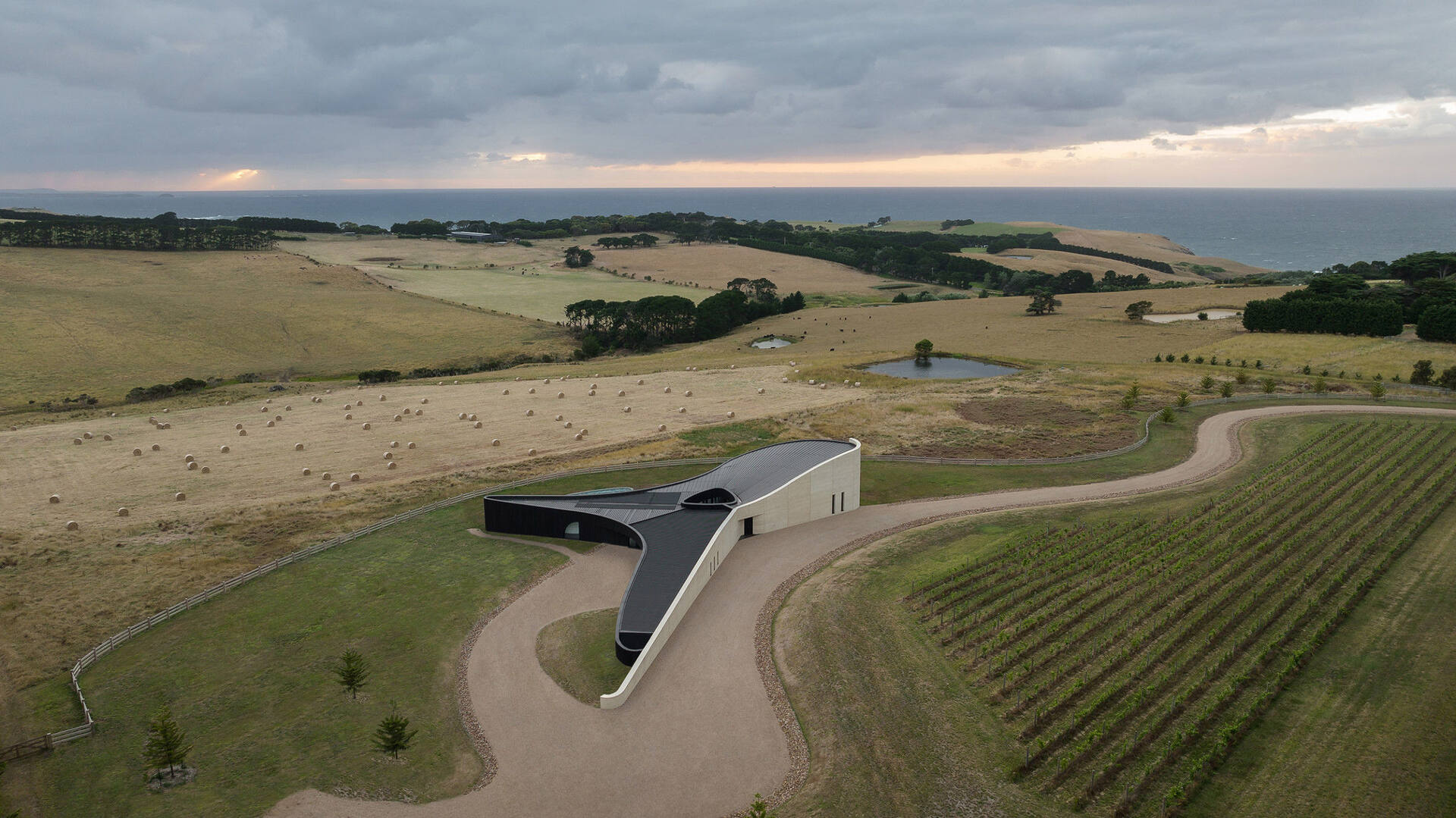
He is also running wines named after his parents.
But he does miss the community.
“No more lifestyle that I grew up with… but I’m starting to pull back all the theias (aunties) that are left,” he says.
“I recently had my mother’s sister at home. I’m the hospitality guy… and I cook breakfast for her and she says ‘Nico, this is the first time anybody’s cooked for me’.”
‘What an eye opener.”
He also had her watch My Big Fat Greek Wedding for the first time and she couldn’t stop laughing seeing Nick himself run around the house with a Windex bottle, like in the movie.
“The humour is such a wonderful way to finish our lives together.”
He also wants this story so his 94-year-old mother can see it, to give her joy and pride.
Nick says he wants to put them on a first-class flight and take them around the world.
“They need to see the rest of the world before they go. It’s not fair that they worked so hard for us. They don’t need it, but I want to give it to them.
“I’ve got showrooms around the world, London, Dubai, Hong Kong, I want to take my mum to my ‘cafes’. That’s what I’m going to tell her. I’ve got cafes and when she walks in and sees life sized posters of my father in his chef outfit as part of our promotional showroom, I want to look into her eyes and see the emotion.”
He says he’ll take his doctor cousin and even if he spends a quarter of a million, he doesn’t care.
“I want to say thank you.”
